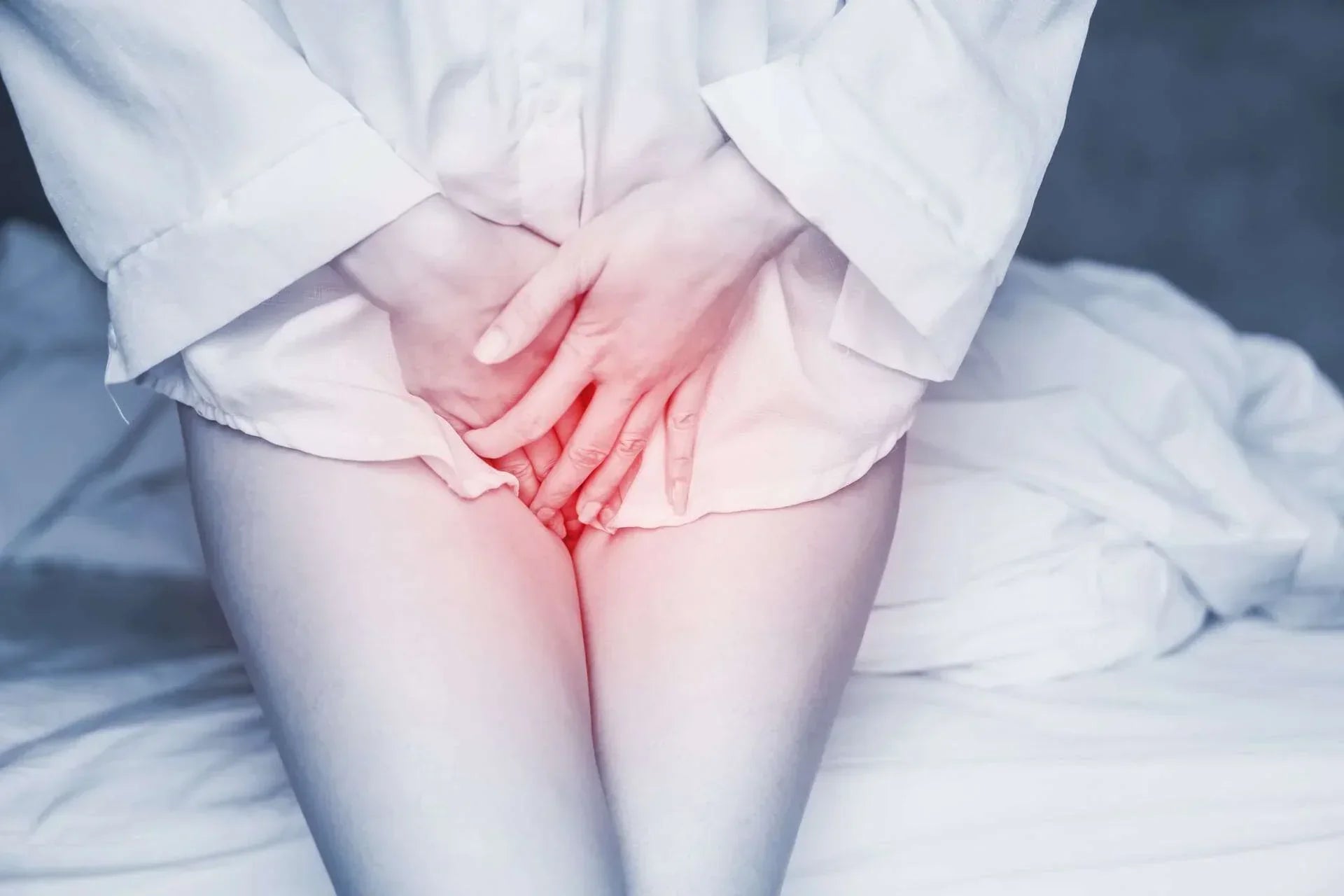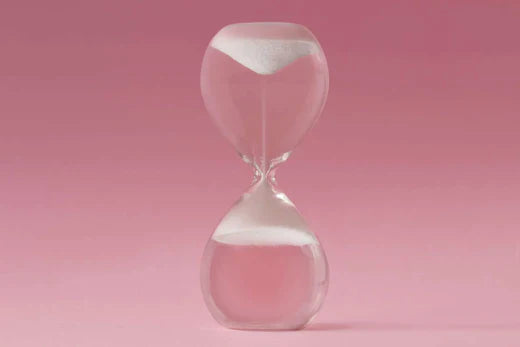Did you know that the female orgasm involves over 10,000 nerve fibers? (1) Or that this moment of pleasure can last from around 12 seconds to a minute (even though it can be longer and more intense sometimes for the same person)? And most importantly of all, did you know that you can have an orgasm at any age? That's right, neither age nor menopause prevents you from enjoying it.
Here we teach you a little more about the female orgasm, the factors that influence it over the years and, of course, some strategies for reaching climax in menopause.
What is the female orgasm?
It is currently defined as the culmination of sexual pleasure. However, there are those who define it as a sensory peak of maximum pleasure that creates an altered state of consciousness accompanied by involuntary and rhythmic contractions of the entire pelvic musculature. This happens in a transitory way, for just a few seconds, and becomes a subsequent feeling of contentment and well-being (2).
Sexual response in women
There are five phases of women’s sexual responses (3):
- Excitement. It is the first phase and usually lasts between several minutes to hours. During this stage, your body changes to prepare you for sexual intercourse. For instance, the muscles tighten, and blood flow to the genitals increases, leading to swelling and darkening of the vulva (including the clitoris) and vagina. The vagina becomes more lubricated and elastic - expanding and lengthening during arousal. Additionally, the heart rate increases, and the breast becomes fuller. You may also notice a slight flush in your face.
- Plateau. Here, the changes that occur in the arousal phase are increased to prepare for orgasm. The clitoris may become more sensitive and retract under the clitoral hood.
- Female orgasm. A short period where there is a high sensation of pleasure accompanied by involuntary contractions of the muscles around the genitals. You may also notice that your breathing and heartbeat are faster than the earlier stages.
- Resolution. At this stage, the body gradually returns to normal, and a sense of well-being is experienced.
- Refractory period. It is a recovery period in which it is more difficult to experience another orgasm. In some people, this time is very short, just a few minutes. Therefore, some experience several orgasms during the same sexual encounter.
What factors are involved in achieving the female orgasm?
It is important that the first two phases of the cycle, excitement and plateau, occur normally to reach the female orgasm. For this, different physical factors must intervene, such as (3):
- Congestion of the genitals is caused by an increase in blood flow to the area.
- Clitoral erection is also produced by an increase in blood flow.
- Vaginal lubrication generated by secretion of specialised glands.
These physical changes must be in perfect harmony with the mind and emotions, since mind, body and emotions are all involved in the arousal circuit and orgasm regardless of gender. Some factors that intervene are ():
- Libido or desire to have sex.
- Stimulation. Focus on exploring stimulation that feels pleasurable and comfortable. Understanding when and how you prefer to experience these sensations can also be helpful.
- Gratification of the sexual experience may be found in different ways and an orgasm is not determinate of this. For some it’s the closeness, intimacy, enjoying their and partner’s pleasure, and feeling of closeness after sex.
This explains that sexual relations in women are a combination of feelings of pleasure, thoughts, and emotions; and that each of these things helps them experience sexual interest, desire, arousal, and pleasure.
Menopausal changes that can make it difficult to orgasm
The Harvard Medical school (4) also mentions that women's sexual satisfaction during the menopause depends on both physical and mental factors. The main changes that can hinder a female orgasm can be:
Mental and emotional
As we already mentioned, this aspect influences the sexual motivation of women and their probability of having a sexual encounter. During menopause there may be (4):
- A decrease in libido or sexual desire, for which the causes should be explored and addressed.
- Changes in emotional intimacy with partners, although many individuals continue to experience strong connections.
- Fellings of insecurity or low
On a physical level
During this time, a marked decrease in oestrogen levels occurs. This results in changes in the mucosa of the genitals that thins and a reduction in glandular secretion. So, women usually have (4):
- Vaginal dryness that does not improve much, despite arousal.
- Pain or tenderness to rubbing and tears.
- Some problems with urine loss.
- Decreased sensation of the clitoris that result in less sensitivity.
Tips to achieve an orgasm during menopause
Despite all these normal age changes, any woman can experience a female orgasm. Although you may need to try a little harder and explore different techniques and approaches to get it than when you were younger. Some tips for reaching orgasm are (4, 5, 6):
On a physical level
- Always have a water-based vaginal lubricant on hand to relieve vaginal dryness and discomfort when it comes to penetration or touching of the genital area.
- Dare to try new things that generate different sensations, such as sex toys. For example, a vibrator may give a stronger sensation.
- Take some time alone to rediscover your erogenous zones and how to stimulate them. Then, teach your partner how to stimulate you.
- Spend more time cuddling and kissing prior to penetration to increase excitement.
- Practice kegel exercises that help you strengthen the pelvic floor. These are good for preventing urine leakage and even for intensifying sensations and facilitating an orgasm.
- Try stimulating the clitoris directly, with your hand, via oral sex with your partner or a sex toy.
- Try new positions until you find the one that makes you feel comfortable.
- Check if any treatment you consume may be further diminishing your desire.
- Use vaginal moisturising creams or gels to improve dryness in the area.
- Maca root, St. John's wort and ginseng root may help increase sexual desire.
On an emotional level
- Have sincere communication with your partner. Emotional intimacy is important to have a pleasant physical connection.
- Plan and leave a special time for intimacy, so as not to have your mind occupied in other tasks.
- To awaken your libido, try sharing your fantasies with your partner or doing different activities, like role-playing games or massages.
- Try to reconnect with pleasurable past experiences and what made them enjoyable.
- Melatonin, valerian, and ginseng can help improve sleep and anxiety.
And above all, enjoy! Remember that achieving an orgasm is not the ultimate goal of sex, it's about having fun and pleasure. So, take it easy, get to know yourself, experience new sensations and live a full sex life even during menopause. There is no doubt that menopause brings with it many changes to the body and mind that can decrease the probability of achieving a female orgasm. But the truth is that this is not impossible. With some simple tricks and patience, you can gradually resume your relationships and live a full sex life.
References
- Uloko M, Isabey EP, Peters BR. How many nerve fibers innervate the human glans clitoris: a histomorphometric evaluation of the dorsal nerve of the clitoris. J Sex Med [Internet]. 2023;20(3):247–52. Available from: http://dx.doi.org/10.1093/jsxmed/qdac027
- Orgasm [Internet]. Cleveland Clinic. 2022. Available from: https://my.clevelandclinic.org/health/articles/22969-orgasm
- Gutierrez B. The human sexual response. AMF 2010;6(10);158. Available from: https://amf-semfyc.com/web/article_ver.php?id=158
- Yes, you can have better sex in midlife and in the years beyond [Internet]. Harvard Health. 2021. Available from: https://www.health.harvard.edu/womens-health/yes-you-can-have-better-sex-in-midlife-and-in-the-years-beyond
- Raypole C. Yes, you can have an orgasm after menopause [Internet]. Healthline. 2021. Available from: https://www.healthline.com/health/menopause/can-a-woman-have-an-orgasm-after-menopause
- Managing menopause at home [Internet]. Medline Plus. 2023. Available from: https://medlineplus.gov/ency/patientinstructions/000392.htm
You May Also Like

JOIN US AND GET 10% OFF
Sign up to our newsletter to access free resources, advice and support.
















